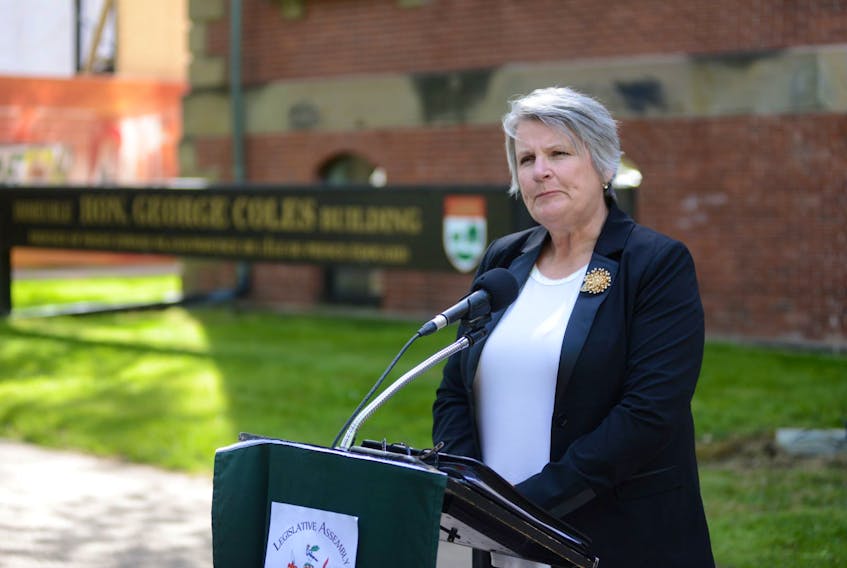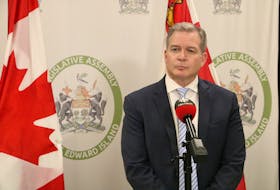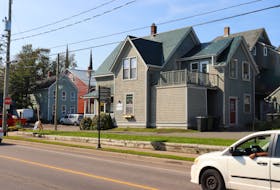CHARLOTTETOWN, P.E.I. — Social policy and anti-poverty advocates have given mostly positive reviews to the recent P.E.I. provincial budget, a rare feat for any Progressive Conservative government but also a likely result of the current minority government.
The recently tabled budget provides significant increases in spending for health care, education and social safety net programming.
Several of the spending commitments were the result of negotiations with the Opposition Greens, who submitted detailed proposals for funding for non-profits and programs for vulnerable Islanders.
Mary Boyd, who has written an annual report card on child poverty, was unusually complementary about this budget.

"I've been following the budgets for a long time, and this is certainly one of the best I've seen for ages," Boyd said.
Boyd said many governments running a deficit as large as the province is could have chosen to cut back on social programs in the face of a COVID-19-induced economic downturn. P.E.I.’s 2021 budget, introduced last week, projects a whopping $173 million deficit.
"I was happy to see that it was progressive as it was. It wasn't an austerity budget, which a government might try to put in at this time," Boyd said.
"I've been following the budgets for a long time, and this is certainly one of the best I've seen for ages."
- Mary Boyd
Boyd said she was happy to see $1.25 million in funding for dental care coverage for seniors and low-income Islanders.
She also said funding for additional cancer drug coverage and a $416,000 investment in evening home care supports were positive.
But Boyd took issue with the increasing reliance on the private sector for P.E.I.’s long-term care sector.
"In P.E.I. now, private care has surpassed public care in long-term facilities. And this is not so good,” Boyd said.
Boyd noted that the high COVID-19 death tolls seen in other parts of Canada have often been traced back to private long-term care homes.
Marcia Carroll, executive director of the P.E.I. Council of People with Disabilities, was also happy to see an additional $8 million allocated to AccessAbility Supports.

"This is a very progressive budget in terms of spending for the social sector," said Carroll.
"They're investing in vulnerable people. They're investing in infrastructure to support the sector itself, which we've not seen in many, many years."
"This is a very progressive budget in terms of spending for the social sector.
They're investing in vulnerable people.
They're investing in infrastructure to support the sector itself, which we've not seen in many, many years."
- Marcia Carroll
Carroll said the budget also provides multi-year funding for non-profit organizations, which provides stability for these social organizations.
Malak Nassar, VP external of the UPEI Student Union, said she was happy to see an investment of $700,000 for the Island Advantage bursary for post-secondary students.

“Needs-based grants are always the best way to go when it comes to supporting students to access post-secondary," Nassar said.
"It's affecting the needs and tackling those low- and middle-income students."
"It's affecting the needs and tackling those low- and middle-income students."
- Malak Nassar
Ann Wheatley of the Cooper Institute was more lukewarm in her comments about the budget.
She said the spending on housing appears geared toward subsidies for renters rather than on building or purchasing new public housing units.
"That money goes directly to landlords, often. It doesn't increase the stock of affordable housing," Wheatley said of the rent subsidies.

Wheatley also said income tax cuts included in the budget may please the business community but will do little to address income inequality on the Island.
"It costs quite a bit, and that takes money away from projects or public services that could be funded through the tax system," Wheatley said.
Wheatley also said the increases in social assistance food rates, although they were implemented in January, are positive.
"It's not a terrible budget, but there are things that could be way better."
- Ann Wheatley
But she said the shelter allowance for social assistance recipients is still lower than average rental costs in P.E.I.
"It's not a terrible budget, but there are things that could be way better," she said.
UPEI economics professor weighs in on provincial budget
UPEI economist Jim Sentance said it was positive that the budget included funding for raising the wages for childcare workers.
The availability of childcare will be important to ensure parents are able to return to work.
But Sentance said questions still remain about the number of childcare spaces available for parents in P.E.I.

He said it remains unclear whether physical distancing requirements will reduce the number of spaces available for parents.
"With the restrictions we're likely to have, you're probably looking at a reduction in capacity," he said.
"I think some spending to try to bump up capacity or cover some of the costs of that would be more helpful in terms of getting a recovery going."









